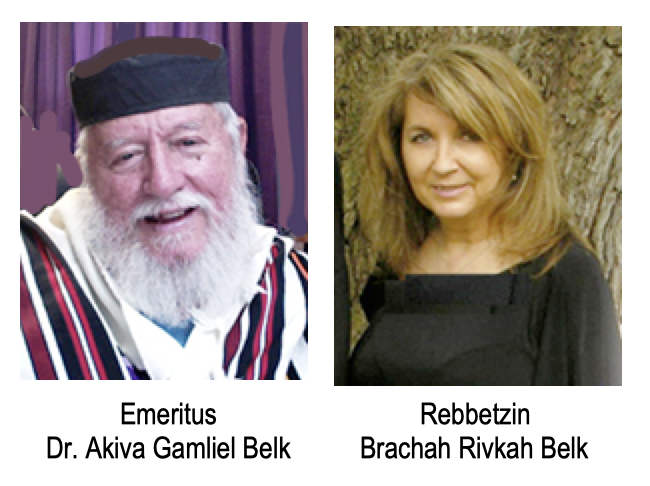3 Love of G-d
Mitzvah 3
Love of G-d
וְאָהַבְתָּ אֵת יְהֹוָה אֱלֹהֶיךָ בְּכָל לְבָבְךָ וּבְכָל נַפְשְׁךָ וּבְכָלמְאֹדֶךָ
And you shall love ( vahavta ) – everything from Aleph to Tav – HaShem – Elohecha – with all – your heart – and with all – Nafshcha (soul) – and with all – your might.
And you shall love the L-rd, your G-d, with all your heart and with all your soul, and with all your means. Devarim (Deuteronomy) 6.5
וְאָהַבְתָּ
Vehavta
And you shall love –
Love – Vav – aleph – heh – vet – tet; devote completely to another
1. Loving Bereishit (Genesis) 37.4
וַיִּרְאוּ אֶחָיו כִּי אֹתוֹ אָהַב אֲבִיהֶם מִכָּל אֶחָיו וַיִּשְׂנְאוּ אֹתו וְלֹא יָכְלוּ דַּבְּרוֹ לְשָׁלֹם:
37:4 And his brothers saw that their father loved him more than all his brothers, so they hated him, and they could not speak with him peacefully.
- relating intimately Devarim(Deuteronomy) 6.5, also Bereishit (Genesis) 22.2, Vavikra (Leviticus) 19.18.
וְאָהַבְתָּ אֵת יְהֹוָה אֱלֹהֶיךָ בְּכָל לְבָבְךָ וּבְכָל נַפְשְׁךָ וּבְכָל מְאֹדֶךָ
6.5 And you shall love the L-rd, your G-d, with all your heart and with all your soul, and with all your means.
Bereishit (Genesis) 22.2
וַיֹּאמֶר קַח נָא אֶת בִּנְךָ אֶת יְחִידְךָ אֲשֶׁר אָהַבְתָּ אֶת יִצְחָק וְלֶךְ לְךָ אֶל אֶרֶץ הַמֹּרִיָּה וְהַעֲלֵהוּ שָׁם לְעֹלָה עַל אַחַד הֶהָרִים אֲשֶׁר אֹמַר אֵלֶיךָ
22.2 And He said, Please take your son, your only one, whom you love, yea, Isaac, and go away to the land of Moriah and bring him up there for a burnt offering on one of the mountains, of which I will tell you.
Vayikra (Leviticus) 19.18
לֹא תִקֹּם וְלֹא תִטֹּר אֶת בְּנֵי עַמֶּךָ וְאָהַבְתָּ לְרֵעֲךָ כָּמוֹךָ אֲנִי יְהֹוָה:
18 You shall neither take revenge from nor bear a grudge against the members of your people; you shall love your neighbor as yourself. I AM The L-rd.
From Aleph to Tav, from Beginning to the End, Love Havayah your Elokim with all your heart, with all your soul, and with all your might.
We are commanded to love G-d, to dwell upon and contemplate His Mitzvot, His Injunctions, and His Works, so that we may obtain a conception of Him, and in conceiving Him attain absolute joy. This constitutes the Love of G-d, and is obligatory.
As the Sifre says: Since it is said, And you shall love Hashem your G-d Devarim (Deuteronomy 6.5), the question arises, how is one to manifest his love for Hashem? Scripture therefore says: And these words which I Command you this day, shall be upon your heart (Devarim – Deuteronomy 6.6); for through this (i.e., the contemplation of G-d’s Words) you will learn to discern Him whose Word called the Universe into existence.
The Sages say that this Mitzvah also includes an obligation to call upon all mankind to serve Him (Baruch Hu), and to have faith in Him. For just as you praise and extol anybody whom you love, and call upon others also to love him, so, if you love Hashem to the extent of the conception of His true nature to which you have attained, you will undoubtedly call upon the foolish and ignorant to seek knowledge of the Truth which you have already acquired.
As the Sifre says: And you shall love Hashem your G-d (Bereisheit – Genesis 12.5; Devarim 6.5): this means that you should make Him beloved of man as Avraham your father did, as it is said, And the souls they had gotten in Charan. (Sifre) That is to say, just as Avraham, being a lover of Hashem – as Scripture testifies, Avraham My friend (Yeshayahu – Isaiah 41.8) – by the power of his conception of G-d, and out of his great love for Him, summoned mankind to believe, you too must so love Him as to summon mankind unto Him. Ramban Maimoides The Commendments Volume 1 page 3-4
This is the second Torah verse of the Shema.
What exactly is going on when we say these words? What are we trying accomplish by praying this phrase?
This is the mitzvah of Yichud: To constantly unify everything in creation with Him, for, He fills the entire world with His Glory (Yeshayahu – Isaiah 6.3), until it is completely apparent below that G-d alone will have been exalted (Tehillim – Psalms148.13), and this is the rectification that will occur in the future, when all the spiritual impurity will disappear, and all of creation will become holy to G-d and Unified with Him. (Leshem, HaKadosh, Sha’ar 7, Perek 6:2)
As the rabbis teach, the word לְבָבְךָ l’vavecha (lamed-vet-vet-chof) has an extra vet, because, we have two inclinations: a yetzer tov and a yetzer hara, which represent the two sides of our heart. One vet corresponds to the yetzer tov, the other vet corresponds to the yetzer hara. This is why the Shema commands us that with both inclinations we must learn to love G-d and to serve Him.
One heart means One G-d. When every aspect of our lives reflects a single belief, a single lifestyle consistent with the Will of G-d, everywhere, and, at all times, it is then that we will have testified to the belief in a Single G-d. A divided heart gives the impression of a divided belief, a belief in more than one god or a divided god.
The word ECHAD, which means ONE is equal in gematria to the number thirteen. So, too, does the word ahavah, which means love equal thirteen. Love means unification with the object of our love, and unification with G-d means a unified heart in belief and devotion.
And, just to end off on a Kabbalistic note, the word ECHAD is spelled: aleph- chet-dalet. In Kabbalah, the letter aleph corresponds to the highest sefirah, Keter. Chet represents the eight sefirot below Keter (Chochmah, Binah, Chesed, Gevurah, Tifferet, Netzach, Hod, and Yesod), until the last sefirah, Malchut. The letter dalet, in Kabbalah, always represents Malchut.
Jews look to make many into ONE while Gentiles look to make ONE into many.
The Shema tells us the G-d is ONE, gentiles say god is three.
Hence, the message of the Shema:
From the very top of creation until the very bottom of creation, even in the darkest, most physical parts of existence, you must know and be real with G-d’s Oneness. There is never a place that G-d isn’t, just places where it is not proper to think about Him. There is never a time when G-d isn’t, just times when He doesn’t seem apparent to us.
The attainment of Love of HaShem is dependant upon study of Torah and Mitzvot and Creation. We are commanded to love G-d, to dwell upon and contemplate His Commandments, His Injunctions, and His Works, so that we may obtain a conception of Him, and in conceiving Him attain absolute joy. As previously stated it is through contemplation of G-d’s Words you will learn to discern Him whose Word Called the universe into existence.
This Commandment directly follows the Shema in Ha Torah. It is the fourth constant Commandment. Love of HaShem is the emotion that motivates the fulfillment of all the 248 Positive Commandments of Ha Torah. This Commandment is a natural result of contemplating HaShem’s Unity.
Since emotion is not under the control of the mind, how is it that this can be a Commandment? Ha Torah Mandates us to first contemplate the Unity and Greatness of HaShem, a contemplation that is intended to spontaneously arouse Love for Him. If G-d is in fact the Ultimate Source of all reality, who could desire to love anything other that Him?
This Commandment would be placed on the right side, the side of mercy. The right side also corresponds to south, which symbolizes a feeling of warmth toward G-d. In Hassidic teachings, the experience of warmth is called love like fire. The gematria of this entire phrase with all your heart, and with all your soul, and with all your might is identical with that of the Hebrew word for flame ( shalhevet). The sages allude to the ever-ascending love for G-d as a fully ignited flame. One ignites the flame of love by meditating on the Unity of G-d. Without meditation we may manifest love like water, but only by the deep and sincere meditation of the heart, searching for G-d with our entire being, do we bear in our soul love like fire. Love like water is like the love of brother and sister; love like fire is like the love of husband and wife.
G-d Created light, the source of warmth, on the first day of Creation, Yom Rishon, the day that corresponds to the sefirah of Chesed. The sages teach that G-d hid the original light, for this light is indeed the Divine Creative Power of love with which G–d Created all of reality. If G-d’s Infinite Love for every one of His Creations was to be revealed, no being could exist as an independent entity. This would negate G-d’s ultimate Purpose in Creation, that He Dwell in the lower realms, in a world that possesses an independent sense of self. The equivalence of the Original Light of Creation with G-d’s Love for Creation is reflected in the fact that the very word for love in Hebrew, ahavah, is an acronym for Or HaKadosh Baruch Hu, meaning the light of the Holy One, Blessed Be He.
In summary, there are three ascending levels of love for G-d.
- With all your heart
- With all your soul
- With all your might
With all your heart – with both inclinations.
With all your soul – even if He Takes your soul
With all your might – with every measure that He Measures to you.
Living in Divine Space Rabbi Yiyzchak Ginsburgh pages52-53
Yesterday is history.
Tomorrow a mystery.
Today is a gift.
That’s why it’s called the present!
Live and savor every moment… This is not a dress rehearsal!
May we try each day to learn about G-d, to follow His Ways and His Truth

Blessings and Peace
Rebbetzin Revi
